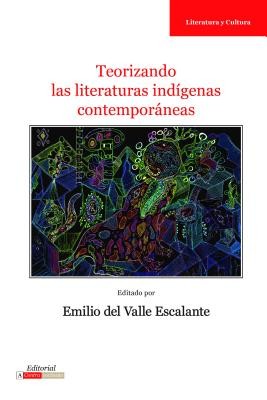
- We will send in 10–14 business days.
- Publisher: Editorial A Contracorriente
- ISBN-10: 0990919102
- ISBN-13: 9780990919100
- Format: 15.2 x 22.9 x 1.7 cm, minkšti viršeliai
- Language: English, Ispanų
- SAVE -10% with code: EXTRA
Teorizando Las Literaturas IndÃgenas Contemporáneas (e-book) (used book) | bookbook.eu
Reviews
Description
The introduction and eight chapters in English and Spanish that make up "Teorizando las literaturas indigenas contemporaneas" examine the textual production of indigenous authorship. The authors start from the nineties and problematize the relationship between Indigenous People and nation-state in Guatemala, Colombia, Peru, Chile, Ecuador, Mexico, and Brazil. It is one of the book's suggestions that current indigenous movements and their demands can be best understood through a critique of textual production of its organic intellectuals. While much has been written about the activities of the social movements and current indigenous textual production, there is still the need for a book that contextualizes what has enabled the emergence of a contemporary indigenous literary canon and its relationship to those social movements. This book aims to fill some of these gaps.
EXTRA 10 % discount with code: EXTRA
The promotion ends in 21d.09:03:02
The discount code is valid when purchasing from 10 €. Discounts do not stack.
- Publisher: Editorial A Contracorriente
- ISBN-10: 0990919102
- ISBN-13: 9780990919100
- Format: 15.2 x 22.9 x 1.7 cm, minkšti viršeliai
- Language: English, Ispanų English, Ispanų
The introduction and eight chapters in English and Spanish that make up "Teorizando las literaturas indigenas contemporaneas" examine the textual production of indigenous authorship. The authors start from the nineties and problematize the relationship between Indigenous People and nation-state in Guatemala, Colombia, Peru, Chile, Ecuador, Mexico, and Brazil. It is one of the book's suggestions that current indigenous movements and their demands can be best understood through a critique of textual production of its organic intellectuals. While much has been written about the activities of the social movements and current indigenous textual production, there is still the need for a book that contextualizes what has enabled the emergence of a contemporary indigenous literary canon and its relationship to those social movements. This book aims to fill some of these gaps.


Reviews